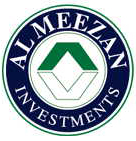| |
DUBAI — As Islamic finance continues to expand, global sukuk issuance, which is currently estimated at $70 billion in value, will top the symbolic $100 billion mark by 2010, according to Standard & Poor's Ratings Services.
"This means, companies and governments seeking to tap oil wealth from the Gulf will sell about $30 billion of Islamic bonds during the next three years," said a report by Standard & Poor’s.
"Mounting demand around the world for Shariah-compliant financial products and services is fuelling the Islamic banking industry’s buoyant expansion,” said S&P credit analyst Anouar Hassoune.
Sharia-compliant assets worldwide are worth an estimated $500 billion and have grown at more than 10 per cent per year over the past decade, placing Islamic finance in a global asset class all of its own, S&P analyst said in a report.
According to the report, in the Gulf and Muslim Asia, an estimated 20 per cent of banking customers would now spontaneously choose an Islamic financial product over a conventional one with a similar risk-return profile. "The market share of Islamic banks currently stands at 12 per cent in Malaysia and 17 per cent in the six GCC countries. Retail banking services and issuance of Islamic notes, or sukuk, have been and will continue to be frontrunners in the global Islamic finance boom," it said.
While Islamic finance will continue to expand both geographically and in terms of products offered, the newly created Shariah-compliant instruments are set to rival product offerings at conventional banks, another report said.
The combined value of Islamic bonds, or sukuk, sold since the emergence of an Islamic finance industry 30 years ago is estimated at about $70 billion now. “Sukuk are now a mainstay in asset allocation in Malaysia and the Gulf countries,” analysts Anouar Hassoune and Mohamed Damak said in the report. “The non-Muslim world is also honing in on sukuks, with issuers aiming to tap surplus liquidity flowing from the Gulf region.”
A record $16.8 billion of Islamic bonds were sold worldwide last year, more than double the $7.6 billion issued in 2005, according to data compiled by Bloomberg. The UK may sell its first-ever Islamic bonds to woo oil funds from the Middle East.
According to S&P reports titled "Chief Drivers Behind Islamic Finance's Global Expansion" and "Islamic Finance To Expand Slowly But Surely In The Maghreb," an ever-broader range of Islamic financial instruments is being made available through long-established Islamic banks in the GCC states and Muslim Asia, while increasing interest from both Muslim and non-Muslim countries is contributing to the development of Islamic finance outside historical boundaries.
To gain a foothold in this market, conventional banks in Muslim countries, along with global banking majors, are creating Islamic windows, while in the U.K. the Financial Services Authority recently licensed the country's first full-fledged Islamic bank.
In markets where Islamic finance is not yet widespread, banks are unable to satisfy demand for Sharia-compliant financial products. As late entrants, however, Islamic banks face the risk of gaining clients with weak credit standings and that have been excluded from conventional banking networks.
"The development of Islamic finance in the Maghreb should be gradual and the Mashreq is emerging as a natural partner," said Standard & Poor's credit analyst Mohamed Damak
|








